Lynette White: Trial 'a dark shadow on justice system'
- Published

Elfyn Llwyd said it was 'incomprehensible' that crucial files had been destroyed
An MP has called the Lynette White police corruption trial a "costly farce" that has "cast a dark shadow upon the justice system".
Elfyn Llwyd, a member of the Commons Justice Select Committee, wants an inquiry into how crucial evidence was destroyed.
The police watchdog has been asked to investigate after the trial of eight former officers collapsed on Thursday.
Mr Llwyd said what happened was "unsatisfactory" and "astonishing".
All eight ex-police officers were cleared of perverting the course of justice at Swansea Crown Court after the wrongful conviction of three men for murder.
The judge ruled the officers and two other defendants, who were also found not guilty, could not get a fair trial.
The case followed the murder of Cardiff prostitute Lynette White in 1988.
Three Cardiff men originally found guilty of her murder were freed in 1992 after the Court of Appeal ruled a gross miscarriage of justice.
Then a DNA match led to another man, Jeffrey Gafoor, a former client of Ms White, who admitted her murder in 2003.
A long inquiry into the original murder case subsequently led to the trial of the former police officers.
Files relating to complaints by an original defendant were said to be missing, and the director of public prosecutions said he was "extremely concerned".
'Incomprehensible'
The cost of the investigations and trials is thought to run into tens of millions, with one estimate putting it as high as £30m.
Mr Llwyd, the MP for Dwyfor Meirionnydd, said Thursday had been "a very, very bad day at the office for both the Crown Prosecution Service and South Wales Police".
"I find it incomprehensible that crucial files should have been destroyed in such a sensitive case," said Mr Llwyd.
'She was a very tragic figure'
He added: "I don't want to look for conspiracy theories here but something unacceptable has happened.
"It's right that we should have a thorough review both as to the role of the Crown Prosecution Service and also the South Wales Police.
"Although this has cost a lot of money, and further inquiries will cost inevitably, we need to find out what went wrong, and crucially ensure that is doesn't happen ever again.
"This does cast a dark shadow upon the justice system, frankly, and we need to clear it up urgently, thoroughly, and if it does cost then so be it."
South Wales Police has asked the Independent Police Complaints Commission (IPCC) to investigate.
'An outrage'
Tim Rogers, a former BBC Wales reporter who met Lynette White just months before she was murdered and who covered her murder trial, described the trial's collapse as "a dreadful day for British justice".
Mr Rogers told BBC Radio Wales: "There are still so many questions that need to be answered and that clearly haven't been."
Mr Rogers said it could not be right that the trial had collapsed "because of incompetence".
"Those who stood trial themselves wouldn't want a case like this to come to a conclusion like that," he said. "They would want to be completely vindicated.
"I think there has to be [a public inquiry]. It's an appalling case and it's gone on for far too long."
Legal commentator Joshua Rozenberg also questioned the handling of the case.
"Nobody would say this is a satisfactory way of handling a criminal trial," he said.
"You would have thought that given that this was an unsolved murder for that period of time, that the police would have carefully held on to all the information they had during that time."
"You would have thought that in a case like this they would have been very careful to keep everything."
Mr Rozenberg backed calls for an inquiry, saying: "The question is whether it's a matter for the Crown Prosecution Service or indeed for the police in Wales.
"The question really is whether the police have behaved appropriately in terms of their disclosure of evidence and indeed before that in terms of their destruction of evidence."
'Implications'
The South Wales Police Federation welcomed the acquittal, saying the retired police officers had endured an "absolute nightmare" of being on bail, awaiting trial.
"The sense of relief which these officers must now be feeling will be overwhelming and we would like to take this opportunity to thank them for presenting such a professional approach to what has been a most depressing and life-changing process," it said.
John Williams, the former head of South Wales CID who led the original murder investigation, said there was a need to "find some accountability" from South Wales Police.
Mr Williams, who explained he had attended the trial in Swansea to support his colleagues in the dock, said: "People will be asking how do the South Wales Police become accountable for what appears to be a severe abuse of process resulting in a massive spend of money."
He added: "[The inquiry] will have implications beyond the police force because it's all about disclosure of evidence, and it seems that the way that evidence was disclosed is not in a proper manner and there's an abuse of process somewhere down the way.
"But that's for the inquiry to decide."
- Published1 December 2011
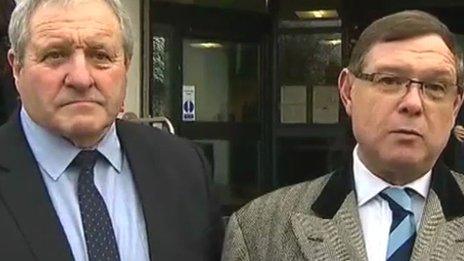
- Published1 December 2011
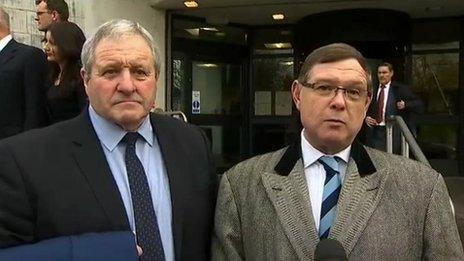
- Published1 December 2011

- Published1 December 2011

- Published14 June 2016
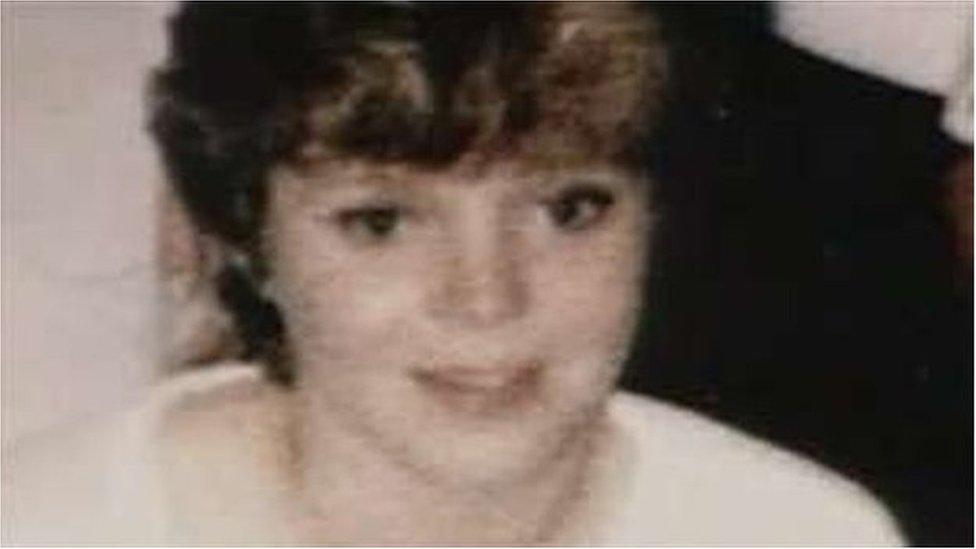
- Published28 October 2011
- Published25 October 2011
- Published24 October 2011
- Published19 October 2011
- Published13 October 2011
- Published12 October 2011
- Published11 October 2011
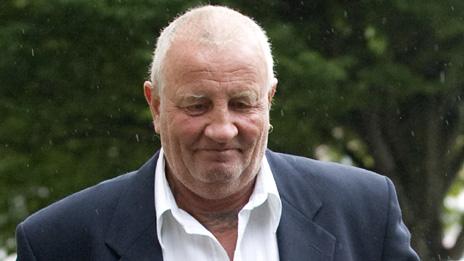
- Published5 October 2011
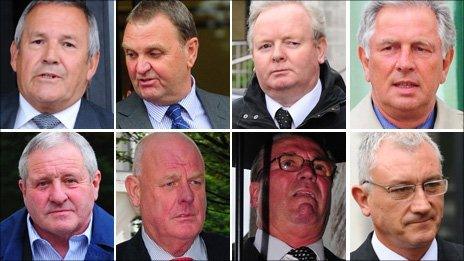
- Published4 October 2011

- Published28 September 2011

- Published26 September 2011
